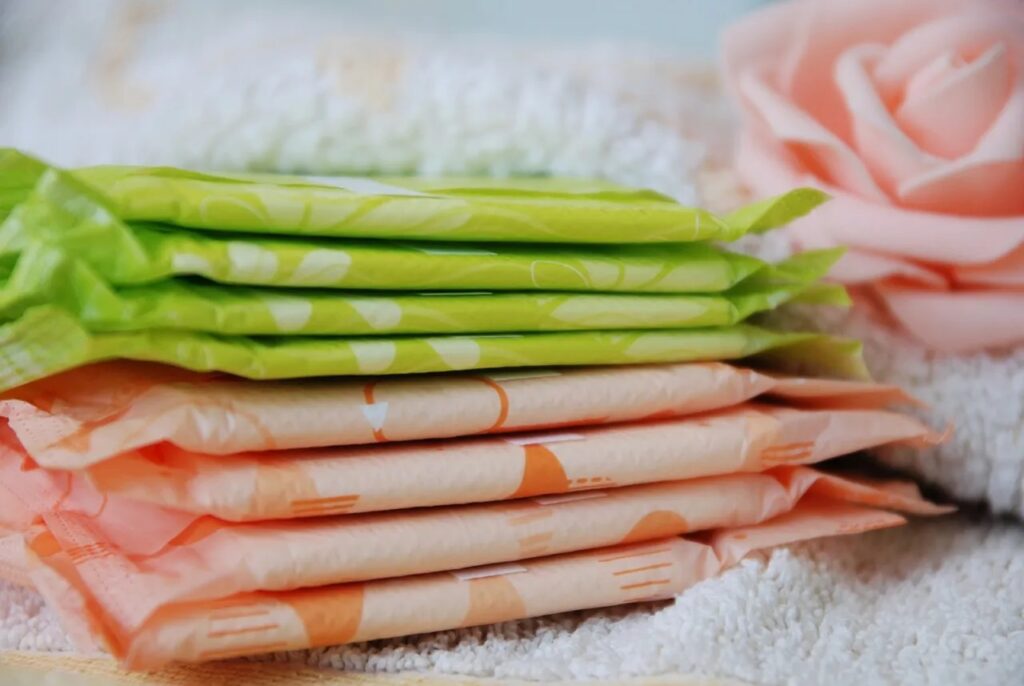How Covid-19 Lockdowns Impacted Menstrual Health In India
Feb 23, 2024 | Pratirodh Bureau
Media reports highlighted period poverty during the pandemic in India, attributing it to the delayed inclusion of the period products in the essentials list at the beginning of the lockdown. Several factors contributed to the decline, including administrative delays for getting work permits, labour shortages due to migration and the reallocation of social workers to COVID related tasks (Representational Image)
Limited access to period products during India’s COVID lockdowns highlighted how far public health initiatives have to go when it comes to menstruation.
Indian women used far fewer sanitary pads, tampons and other period products during COVID-19 lockdowns — with those items becoming hard to access due to not being initially included on the essential items list.
For those in the red zones — the districts under the strictest lockdown measures — research reveals a 53 percent decline in the distribution of sanitary pads to adolescent girls, compared to girls in green zones under the lightest lockdown measures.
Consumption dropped 16 per cent in the most strictly locked-down districts of India during 2020. In rural districts alone, it dropped 25 per cent.
“Accessing pads in the lockdown was a major crisis for us in the village because the shops in the market were shut and there was no other source to avail it from,” one 19-year-old living in the village of Hardiya in the eastern state of Bihar said.
Her solution was to band together with a group of friends to try to source the products for their village.
The cost of period products soared during lockdowns too.
“Since disposable pads were not available easily, this led to black marketing,” one 27-year-old professional said. “I had to pay almost double the price to procure the product.”
Period poverty — the lack of access to resources and education linked to menstrual health and hygiene, including essential items like period products, washing facilities, and proper waste management — has long been a pressing concern in India.
Its roots can be traced back to patriarchal notions that label menstruation as impure and dirty, restricting the freedom of those who menstruate during their periods.
Despite global recognition of menstrual health as a public health and human rights issue, period poverty continues to taint the experiences of the individuals who menstruate in India.
This prompted the government to initiate a Menstrual Hygiene Scheme in 2011 for adolescent girls across the country.
The scheme involves distribution of sanitary pads alongside educational programmes on menstrual health.
However, the COVID-19 pandemic exacerbated period poverty, primarily due to the widespread job losses and financial difficulties resulting from extended quarantines and business closure.
The lockdown impacted the distribution of sanitary pads under the scheme.
The consumption of period products was also affected.
Media reports highlighted period poverty during the pandemic in India, attributing it to the delayed inclusion of the period products in the essentials list at the beginning of the lockdown.
Several factors contributed to the decline, including administrative delays for getting work permits, labour shortages due to migration and the reallocation of social workers to COVID related tasks.
But overall they showed a gap in the healthcare system to address this gender equity divide.
These challenges forced women and other people who menstruate to use the same period products for extended periods or resort to alternatives including clothes and rags.
The effect on menstrual health was acute, including irregular menstrual cycles, heavy bleeding, and infections, which led to the genital tract-related diseases.
In disaster-like situations, individuals who menstruate often find themselves at the bottom of the priority list.
During the pandemic, resources were diverted to combat the virus, leaving period products unavailable and inaccessible.
This, in turn, led to compromised menstrual health, exacerbating stress and anxiety among those who menstruate.
Prioritising the rights of the individuals who menstruate, especially in emergency-related situations, is imperative.
Moving forward, there are specific measures the government and policymakers could take to support menstrual health and hygiene.
These include ensuring the availability and accessibility of period products during emergencies and incentivising manufacturers working in the similar industry to start making period products.
They could also conduct public health communication campaigns via mass media and social media channels to dispel taboos and myths surrounding menstruation, and improve measures for effective menstrual health and hygiene.
By taking these steps, India and other countries can work towards a more inclusive and supportive environment for individuals who menstruate, especially during challenging times.
(Originally published under Creative Commons by 360info™.)
